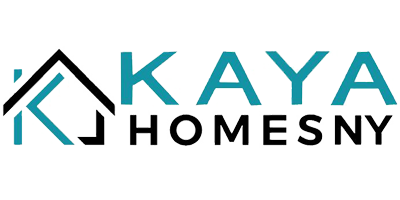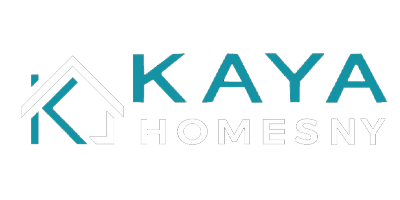Dreaming of owning a piece of the Empire State, whether it be a cozy suburban townhouse, an upstate retreat, or an in-city apartment? Buying a house in New York State can be both exciting and intimidating. No other real estate market in the country parallels New York’s, with its mix of urban, suburban, and rural properties-suitable for any kind of lifestyle and alternative forms of investment.
In this comprehensive guide, we are going to take you through everything there is to know in buying your dream house in the Empire State, and how to avoid common pitfalls while making an informed decision at every step.
Preparing for the Home Buying Process in New York
The New York housing market moves so fast, and being prepared means getting into your dream home without missing out on the opportunity. Check your credit score next; most lenders require a minimum credit score of 620, but the higher the score, the better the interest rates.
Gather basic documentation which include recent pay stubs, W-2s, tax returns, and bank statements for the previous two years. Take a first-time homebuyer education course. Many New York lenders require classes, and they will assuredly bring valuable insight into the local market. Further, completion of such a class may award you special programs and grants available to New York residents.
Setting a Budget and Calculating Affordability
One of the most important things to know if you want to buy or sell a house in Long Island is how much you can afford within New York’s diverse market. Generally speaking, monthly housing costs should not exceed 28-30% of your gross income, including mortgage, taxes, and insurance. Property taxes in New York are higher compared with most other states; therefore, this should be factored in with regard to your calculations.
Additional costs to keep in mind which are New York-specific include:
- Property taxes (which vary significantly by county)
- New York State mansion tax: 1% on homes sold for $1 million and above
- Higher homeowner’s insurance rates in those areas
- Potential flood insurance in coastal areas
- Common charges or HOA fees, if any
Finding a Real Estate Agent in New York
A knowledgeable local real estate agent is an individual’s best partner in New York’s competitive market. It is important to look out for those real estate agents who:
- Have extensive experience in your target area
- Knows real estate laws and practices that are peculiar to New York State.
- Has a proven record of negotiation success.
- Can provide references from recent clients
- Familiar with the unique aspects of all New York property types
Interview at least three agents and ask them to disclose their experience with properties in your price range and desired locations. A good agent should be able to inform you about market trends, the history of property taxes, and the characteristics of the neighborhood.
Choosing the Right Neighborhood and Location
New York State has a number of living options that are certainly diverse, each varying in its own charm and challenges. Let’s consider the next factors:
- Commute times and transportation options
- Quality of educational districts-even if you don’t have children, this affects property values
- Property tax rates – they vary dramatically by county and municipality
- Flood zones and environmental factors
- Development plans for the area in the future
- Local amenities and services
- Community character and lifestyle fit
Drive through prospective neighborhoods during different times of the day and with different types of weather. If at all feasible, speak directly with locals who can recount how life in the area really is.
Starting Your Home Search in New York
Now the fun part: it’s time to see some houses! First, learn to set up automatic alerts on real estate portals that will help you stay informed about new listings. Be prepared to start touring as soon as properties become available because timing is everything. Take photos and extensive notes during viewings for later comparison, then research comparable sales in the neighborhood to get a better feel for market value. Pay attention to the age and condition of major systems, and research any potential environmental concerns, upcoming assessments, and zoning changes. Lastly, consider seasonal factors: New York winters can expose problems that may be masked during warmer months.
Making an Offer on a New York Home
When you find the right property, it’s important to act decisively yet wisely. Shape your offer with consideration to recent comparable sales, condition of property, and any needed repairs. Take into account how long the property has been on the market; current market trends; and the motivation of the seller.
Don’t over-stretch: put in a strong offer with contingencies on mortgage approval, home inspection, and appraisal of property. For older homes, make sure the contingencies include lead paint disclosures, pest inspections, and radon testing-perhaps especially important in parts of New York where this is very common.
Understanding the Purchase Contract Process
New York has its unique system of requirements regarding real estate contracts. You want to work with an experienced real estate attorney who can protect your interests and clearly explain the terms of your contract. Unlike many states, in New York:
- Offers are not binding until a formal contract has been signed.
- There is usually a three-day attorney review period.
- The contract must be approved by both parties’ attorneys
- The purchase agreement shall be put in writing.
Negotiating the Price and Terms
Remember, price is not everything; there are so many other things to negotiate: closing dates, what’s included or not, and even repair credits. To effectively negotiate in New York’s market means:
- Know the local market conditions.
- Knowledge of the cost of property and market trends
- Flexibility on terms depending upon the circumstances
- Clear communication through your agent
- Patience, and the ability to walk away if necessary
The Home Inspection Process in New York
Never skip the home inspection! Get a licensed inspector who knows the local building codes and what kind of regional issues come up more often. New York homes have some unique challenges, such as:
- Asbestos or lead paint may be contained in older homes.
- Basement moisture is a common problem.
- Aging electrical systems within historic properties
- Possible radon problems in some areas
- Storm damage concerns in coastal areas
Closing Process
After signing, you can expect it to take up to 60-90 days for closing; however, the time estimate may vary. In New York, the process of closing has some unique characteristic features. Title insurance is obtained, which protects against any possible legal problems regarding the title of the property.
A formal closing meeting is customary, with multiple parties in attendance, including buyers, sellers, their attorneys, and representatives from the title company. The funds generally are required in certified form. If the property is located within New York City, an assessed tax is applied to the property, which makes it even more complex.
Common Mistakes to Avoid When Buying a House in New York
There are many known mistakes in buying a house in New York that can result in several financial strains and disappointments. Here are some of them:
- Skipping the Real Estate Agent: This means handling everything on your own in NYC’s market. That’s a surefire recipe for accidents. An experienced agent offers some invaluable insight and support.
- No Pre-Approval Mortgage: You will likely look at homes that are too expensive and put you in a position of negotiating from a place of weakness.
- Ignoring Inspections: Skipping a home inspection may lead to costly surprises. Inspections are taken seriously in order to understand the property’s condition.
- Not calculating closing costs: These may be anywhere from 2% to 5% of the selling price and cover appraisal, title insurance, and attorneys fees.
- Unrealistic Expectations: Emphasis on the unendurably ideal “dream home” without regard for budget and market realities is one source of frustration.
- Neglecting Neighborhoods: Amenities, safety, resale value-all this research ensures long-term satisfaction.
- Avoiding Negotiation: Negotiating can save significant money—don’t settle for the asking price without trying.
- Forgetting Future Needs: Choose a home that accommodates potential changes in family or job situations.
Conclusion
Buying a house is a significant decision; therefore, it requires sufficient preparation, research, and professional advice. If you ever want to buy or sell a Long Island house or any other region in New York State, then learn about some unique features of the New York State real estate market, which will help you make informed choices. Take your time, do your homework, and work with seasoned pros who know the local market. Remember: as daunting as this might sound, it is something thousands of people go through every year. With proper preparation and the right team working for you, you can become one of them and realize your house ownership dream in the Empire State.
Frequently Asked Questions
What is the first thing to do when buying a house in New York?
First, go ahead and get pre-approved for a mortgage. This is done by sitting down with the lender and will consist of the amount of money you can borrow based on financial status. It helps to understand your budget and also strengthens your position when making an offer on a property.
Are there any other costs besides a down payment that I should know about that apply?
Yes, it is advisable that buyers budget for a number of other costs besides the basic price of the house. This includes closing costs ranging from 2% to 5% of the price a home is bought for. Other probable expenses include property taxes, insurance for the home against further damage or loss, as well as maintenance of the home.
Should I use a real estate agent when buying a property in New York?
It is definitely recommended that you hire a real estate broker. A good agent will show you through the New York housing market, find properties to suit your needs, negotiate offers, and navigate the closing process.
Can foreigners buy a house in New York?
Yes, foreigners can buy any type of property in New York. Simply put, foreigners can purchase each type, be it a single-family residence, condominiums, cooperatives, or even land. As a matter of fact, there is no type of property restriction pertaining to a foreign buyer. Options usually include cooperatives, condominiums, and townhouses in Long Island.










 by Mottek Group
by Mottek Group